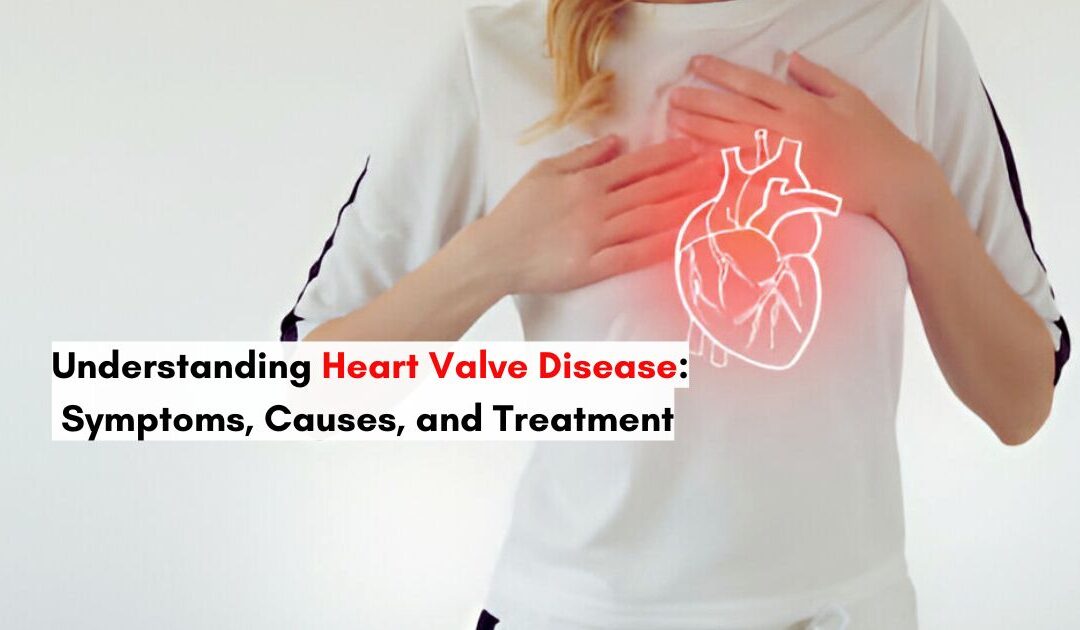Heart valve disease is a condition that affects the valves of the heart, which play a critical role in regulating blood flow. These valves act like one-way doors, ensuring blood flows smoothly from one part of the heart to another and into the rest of the body. When these valves malfunction, they can disrupt the heart’s ability to pump blood efficiently, leading to various health issues. If left untreated, heart valve disease can seriously impact a person’s quality of life and may even lead to heart failure.
Types of Heart Valve Malfunctions
There are different ways in which the heart’s valves can malfunction. The three primary types of valve issues are:
- Stenosis: This occurs when a valve becomes narrowed or stiff, making it difficult for blood to pass through. The heart has to work harder to push blood through the valve, which can weaken the heart over time.
- Regurgitation: Also known as valve insufficiency or incompetence, this happens when the valve doesn’t close properly. As a result, blood can leak backward into the chamber it came from, causing the heart to become less efficient in pumping blood forward.
- Prolapse: In this condition, the valve flaps fall backward or bulge into the heart’s upper chambers instead of closing properly. This can lead to regurgitation, where blood flows backward.
In some cases, a person may experience a combination of these issues in one valve, making the condition more complex.
Causes of Heart Valve Disease
Several factors can contribute to heart valve disease, including congenital issues (present from birth), infections, aging, and lifestyle-related conditions like high blood pressure.
- Congenital Defects: Some people are born with valve defects, which may include:
- Atrial Septal Defect (ASD)
- Ventricular Septal Defect (VSD)
- Patent Ductus Arteriosus (PDA)
- Coarctation of the Aorta
- Aortic Stenosis
- Pulmonary Stenosis
- Infections: Conditions like rheumatic fever, which can occur after untreated strep throat, and infective endocarditis can damage the heart valves.
- Aging and Degenerative Changes: As we age, wear and tear can cause the heart valves to thicken or become less flexible, reducing their ability to function properly.
- High Blood Pressure: Chronic high blood pressure forces the heart to pump harder, putting stress on the valves and eventually leading to valve malfunction.
- Heart Attack: The damage caused by a heart attack can scar the heart valves, making them less functional and increasing the risk of heart valve disease.
Common Symptoms of Heart Valve Disease
The symptoms of heart valve disease vary depending on which valve is affected and how severe the condition is. However, there are several common symptoms that people with this condition may experience:
- Chest pain or discomfort: This can feel like pressure or tightness in the chest, especially during physical activity.
- Shortness of breath: Many people notice difficulty breathing, particularly when lying down or during exertion.
- Fatigue: Reduced blood flow due to valve malfunction can leave you feeling tired, even after light activities.
- Rapid or irregular heartbeat: This can be felt as palpitations or a racing heart.
- Swelling in the legs or ankles: Fluid buildup due to improper blood flow can cause noticeable swelling in the lower extremities.
- Dizziness or fainting spells: Reduced blood flow to the brain can result in feeling lightheaded or passing out.
Treatment Options for Heart Valve Disease
When it comes to treating heart valve disease, early diagnosis and appropriate care are critical. There are two primary treatment paths: medication and surgery.
- Medication: For less severe cases, medications may be prescribed to manage symptoms or treat related conditions such as high blood pressure or arrhythmias (irregular heartbeats). However, medication cannot reverse valve damage, but it can help control symptoms and prevent further complications.
- Surgical Intervention: In more advanced cases, surgery may be required to repair or replace the faulty valve.
- Valve Repair: If possible, repairing the valve is often the preferred option. This might involve reshaping or tightening the valve to restore normal function. Repairing the valve often has the advantage of preserving the patient’s own tissue, which can result in better long-term outcomes.
- Valve Replacement: When repair isn’t feasible, the damaged valve may need to be replaced with a prosthetic valve. These can be either mechanical or made from biological tissue (often from a pig or cow). While mechanical valves are long-lasting, they may require lifelong blood-thinning medication.
Why You Should Seek Professional Help
If you’re experiencing any of the symptoms of heart valve disease, it’s essential to consult with a healthcare professional as soon as possible. Early detection can help prevent complications and improve outcomes. Dr. Jagadesh, an experienced cardiologist, is highly skilled in diagnosing and treating heart valve disease. He offers personalized care to ensure that you receive the best possible treatment for your condition.
Tired of Losing Sleep Over Snoring?
Try These Simple Fixes:
- Sleep on your side for better airflow
- Elevate your head while sleeping
- Skip alcohol before bed
- Quit smoking for clearer breathing
- Use nasal strips or a nasal dilator for relief

